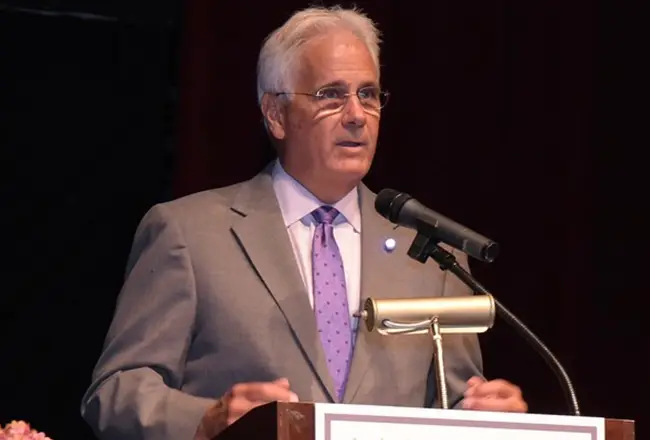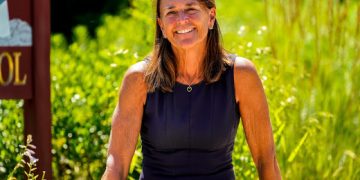
A lifelong Westchester resident, Joseph A. Stout has spent his entire career focused on parks and recreation. He previously served as commissioner of the Westchester County Department of Parks, Recreation and Conservation prior to his retirement in 2010. Today, he works as the first paid executive director of the Westchester Parks Foundation, where he has overseen nearly $10 million in grants and donations invested in the county”™s park system. He spoke with Business Journal reporter Aleesia Forni about his four-decade-long career, his devotion to parks and recreation and some of the misconceptions about the county”™s park system.
You”™ve spent decades working in parks and recreation. What first drew you to this field?
“I was born a rec kid. We had a great recreation program in Harrison where I grew up and still live. I went to day camp, went to the local pool and naturally gravitated to the ”˜Rec,”™ the local teen/community center. It was the place for all of us to go. I got my first ”˜real”™ job there at 16 doing everything from cleaning bathrooms and supervising the teen center to preparing clay tennis courts and ballfields.
That started me on a 40-year career in parks and recreation where I came to see not only the impact it had on my life and the values it helped instill in me, but more importantly, the impact it has on our community and all the people who live here.”
What are some of the biggest misconceptions people have about Westchester”™s parks?
“There are a few misconceptions. One is that a lot of people don”™t know about the county parks or they don”™t know that the parks are county parks. Most people don”™t realize that there are 18,000 acres and 50 different parks, and that there are parks, recreational areas, beaches, pools and more. For every dollar invested in those parks, $5 in economic activity is generated in our county that supports over 1,000 private-sector jobs. That”™s $185 million a year in positive economic impact on Westchester”™s economy.
And while people pay taxes to support their county parks, the average resident pays about 12 cents per day for all those services, less than $43 per year. Park related taxes represent less than 3 percent of your county tax bill.
One final interesting fact is that 75 percent of people in the county use their county parks each year. That is by far the most used service provided by the county government.”
Before joining Westchester Parks Foundation, you worked as commissioner of the county”™s Department of Parks, Recreation and Conservation. What was the transition to the nonprofit world like for you?
“It was pretty interesting. The not-for-profit world is really a business. It has a public benefit to it, but it is a business nonetheless and that takes a different set of skills to manage and cultivate constituents in a different way. We, for the most part, do not provide direct services to the public in the way that the parks department does. Our role is to support the engagement of the public in the use and protection of the park system.
The cool part is that we get to address some of the thorny issues that the parks department does not have the resources to bring to bear on, and we can make an immediate impact on the parks.”
Were there any surprises in your new role? Anything that came up with your new position that you maybe weren”™t expecting?
“Yes ”” no margin, no mission! Having grown up essentially in a government environment, the need for making what you need to spend has a different definition than what a not-for-profit must deal with. People and companies love to support programs and projects that improve our parks, but there is a cost to providing those services. So educating donors about the need to invest in the ability of the foundation to support those activities that they love requires them to support the infrastructure to actually do it, and that has been a real challenge.”
Speaking of your former job, the county”™s parks became the first in New York to be nationally accredited by the National Recreation and Parks Association under your direction. What was that accomplishment like for you?
“It was very rewarding because it confirmed to the public and decision makers that the dedicated staff of the parks department are on par with the best public park and recreation agencies in the country.
I think it helped the parks department staff focus on the metrics that matter in delivering a high-quality product to the public. I think they do an amazing job under a lot of stress. Over 3 million people use our park system each year and they host some awesome special events and facilities. I am proud of the fact that they have been reaccredited twice since and I firmly believe they will be again this year.”
What have been some of the biggest challenges over the course of your career?
“Being involved with high quality park and recreation systems at the senior management level requires a pretty significant amount of time away from the family. Basically, you work when other people play. There are a lot of nights and weekends and sometimes keeping that balance is difficult. I am lucky that my wife, daughter and now son-in-law understood and were and are supportive. It”™s really difficult without the home base being on your side.
The other big challenge is moving people from their personal understanding of the value of parks and open spaces to their own quality of life to one where they understand that these beautiful parks and programs cannot survive and thrive without their continued support and active interest. You only need to look at the recent history of Central Park in Manhattan to see what can happen when citizens are not engaged with their parks; but really, more importantly, what can happen when they are. The transformations are nothing short of amazing. We want that type of commitment from our users and residents right here in Westchester.”
What are you reading right now?
“I like historical novels or political biographies. I just finished ”˜Mr. Lincoln”™s Army”™ about the Army of the Potomac in the Civil War by Bruce Catton, and I am almost done with ”˜A Higher Loyalty”™ by James Comey.”
What does a typical weekday look like for you?
“Most days I am in the office meeting with staff about our priorities and programs. I am excited about our new individual engagement program where we do small group ”˜points of entry”™ tours of our mission. We are changing our messaging from ”˜what”™ we do, to the more important ”˜why”™ we do it and how that impacts each of us. Those of us who live and work here all have our park stories about how parks, programs or open spaces have created those special moments in our lives. Can you imagine what Westchester would look like without its parks? We spend a lot of time focusing on connecting people with their story and seeing that value.”
What about weekends?
“Weekend days are spent playing golf or on the beach or grilling and hanging out with my family and our rescue bulldog Hugo. Or as my good friend Dan always says, ”˜I am taking time to recreate, because the benefits are endless!”™”
Note: Portions of this interview have been edited for clarity.
















